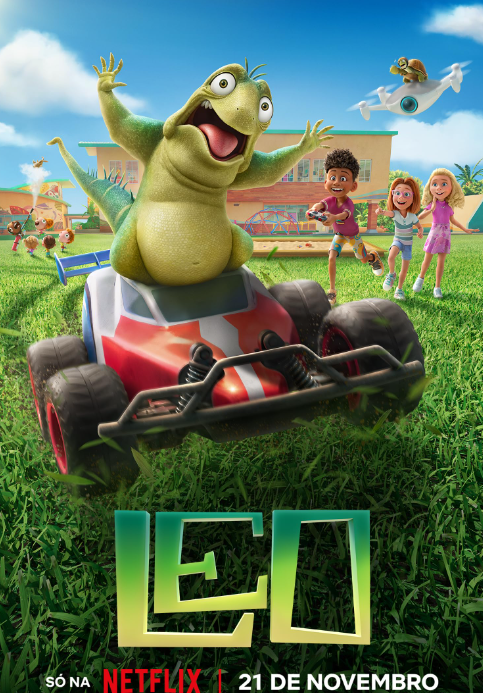Jannette Emmerick
Released on Netflix in November, animated movie “Leo” follows the tale of a geriatric iguana in a school classroom. The film itself still stands as a surprising sleeper when it comes to meaningful and memorable movies.
In the movie review world, “Leo” spiked in popularity mostly because it was released the same month as Disney’s “Wish.” Both being animated movies aimed at younger audiences, they were still different genres, but that didn’t stop the comparisons. Despite “Leo” being a straight to streaming movie, and “Wish” being released in cinemas, “Leo” received endless praises, with many acknowledging the hopelessness and downfall of Disney’s storytelling when an Adam Sandler’s movie is better than a 100th year anniversary film.
The story follows Leo, an 74 year old iguana that believes he is near the end of his life. He dreams to be free in the Florida Everglades, but instead ends up getting roped into a “take the class pet home” sort of journey where a different student cares for him each week. Along the way, he ends up bonding with the fifth-graders and showing them his years of wisdom— even if it’s not always sage advice.
Largely written and produced by Adam Sandler alongside other writers including Robert Smigel and Paul Sado, “Leo” delivers in the humor department, most noticeably, the piranha-like kindergarteners or the musical numbers. Yes, it is a musical. As if an Adam Sandler lizard was not bizarre enough, the movie features several satirical songs that play on musical theater tropes.
For one song in particular, the students in the class begin to lament about how they’re older now, dropping lines like “when I was three” or “when I was seven,” with the punchline being that they’re all ten-year-olds. Still, the song and the movie itself highlights the validity of change while growing up no matter age. Showing that even ten year olds can feel a sense of longing for younger years despite being young in the eyes of older folks.
“Leo” hits other themes also about adolescence, change, family, friendship, self esteem, stress and many others. These generational themes are a reason why many preferred the film over “Wish,” because Disney’s film primarily targeted young children in its concepts and themes, as opposed to a family audience.
Moreover, the animation itself delivers a refreshing style to 3-D animation between the textures and character designs. While reminiscent of the CalArts style, there is still a uniqueness to the presentation, especially with the rabid kindergarteners.
However, “Leo” still has its criticisms, mostly being the reliance on the “white-lie” trope. Specifically, Leo tells each individual student that they are the only one he talks to and this leads to them being upset when they find out they aren’t special. Still, this one nitpick can be overlooked, especially by those who are unaccustomed to the trope.
Overall, “Leo” is a highly recommended movie if one is in the mood for animation and humor, or looking for a good family movie. No matter the age of the viewer, there’s something for everyone to learn from and laugh at.
